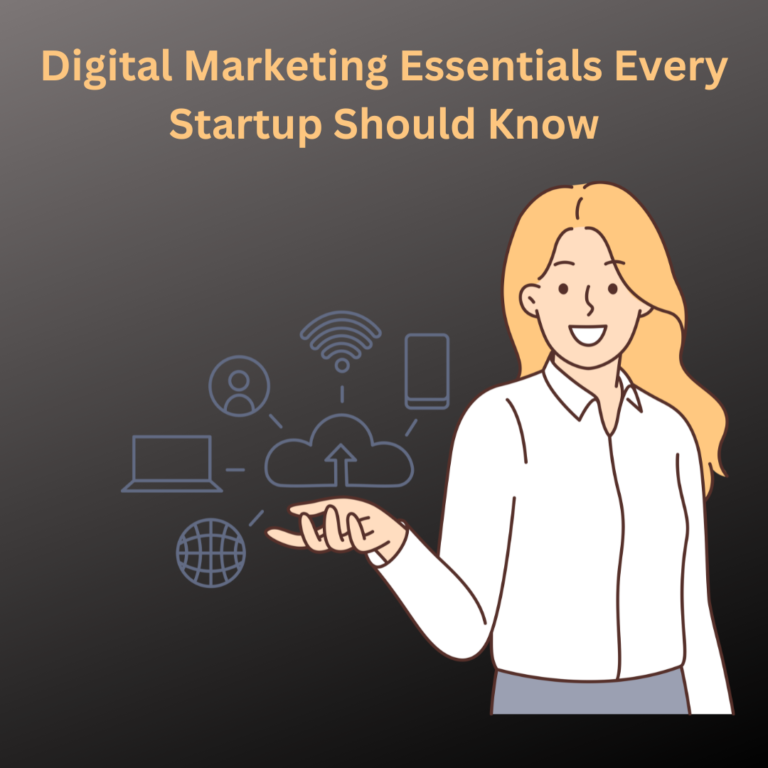I. INTRODUCTION
• What is Real Estate Digital Marketing?
Digital marketing for real estate includes all online attempts to reach and interest people who want to buy or sell a home. This includes things like building a strong online footprint, using search engines, making the most of social media, and using targeted advertising to connect with customers in the best way possible.
Today, it’s not a nice-to-have for real estate agents to have a good online profile; it’s a must.
II. Digital Marketing Channels for Real Estate are:
1. Search Engine Optimization (SEO):
Local SEO is essential for real estate salespeople.
- Pay attention to making your website and online listings (Google My Business, Zillow, etc.) better so they show up higher in local search results when people type in things like “best mortgage lenders,” “real estate agents in [your city],” or “homes for sale in [your neighborhood].”
Property Listing Optimization:
- In property descriptions, use important keywords.
- Add pictures and videos of good quality.
- Make sure that your entries are correct and up to date.
Building Citations:
- Use appropriate online directories (like Yelp, Google Maps, etc.) to claim and improve your business profiles.
- Make sure that your NAP (Name, Address, and Phone Number) information is the same on all devices.
Keyword Research and On-Page Optimization:
- Do thorough keyword research to find search terms that potential customers are using that are important to your business.
- Use relevant keywords in your website’s blog posts, “about us” pages, and other material.
2. Pay-Per-Click (PPC) Advertising
Google Ads
Run focused ads on Google Search and Google Maps with Google Ads.
Aim for specific age groups, income levels, interest areas, places, and even keywords that have to do with buying or selling a home.
Ad Copy
That Makes People Want to Click: Write ads that make people want to click by highlighting your unique selling points.
Tracking and Analysis:
Keep an eye on essential numbers like cost per acquisition (CPA), click-through rates (CTR), and conversion rates to see how well your campaign is doing and make any changes that are needed.
3. Platforms for marketing on social media:
Platforms:
- People who might buy from you can be found on Facebook, Instagram, LinkedIn, and even TikTok.
Community Engagement:
- Join local community groups and take part in crucial online conversations.
- Talk about your local real estate market, area guides, and property tips.
Ads That Are More Specific:
- Run ad campaigns on social media that are more specific to reach people with certain hobbies and demographics.
Visual Content:
- Post high-quality pictures and videos of homes, events happening in the area, and customer reviews.
4. Content marketing: Digital Marketing For Real Estate
Make helpful content:
- Write helpful blog posts, articles, and movies that potential customers will find valuable.
- Such as: “First-Time Homebuyer’s Guide,” “Tips for Selling Your Home in a Competitive Market,” and “Local Neighborhood Highlights.”
Build an Email List:
- To get people to sign up for your email list, offer them valuable things like market reports and checklists in return for their email address.
Lead Nurturing:
- Use email marketing to keep in touch with leads and eventually turn them into customers.
Thought Leadership:
- Using your material, make yourself known as an expert in the local real estate market that people can trust.
5. Marketing through email: Digital Marketing For Real Estate
Make an email list:
- Get email addresses from people who visit your website, follow you on social media, and come to your open houses.
Tailor-made campaigns:
- Divide your email list into groups and send campaigns just for those people (for example, first-time customers, sellers, and investors).
Automation:
- Use email marketing automation tools to send welcome sequences, keep leads interested, and follow up with leads after they’ve asked a question.
Recording and Analyzing:
- Keep track of the number of opens, clicks, and sales from your emails to see how well your efforts are doing.
6. Video marketing: Digital Marketing For Real Estate
Virtual tours:
Use 360-degree cameras or drone video to make high-quality virtual tours of properties.
Engaging Videos:
- Post interesting and educational videos on social media sites and YouTube.
- Such as: “Neighborhood Spotlights,” “Client Testimonials,” and “Tips for “How to Stage Your Home.” Video Testimonials: Use video endorsements from happy customers to get people to trust you.
7. Mobile marketing : Digital Marketing For Real Estate
mobile-friendly website: ₧ Make your website mobile-friendly so it works well on phones and laptops.
Location-Based Services: To find potential customers in certain places, use location-based services like geofencing.
Text Message Marketing: You can send targeted text message ads to possible customers (as long as they permit you).
III. Technology and tools
• Customer relationship management (CRM) software, like Salesforce or HubSpot, to keep track of contacts with clients and automate work processes.
• Tools for managing projects, like Asana and Trello, to plan and keep track of digital marketing efforts.
• Social media scheduling tools, like Hootsuite and Buffer, to plan and post on social media.
• Website analytics tools, like Google Analytics, to keep an eye on website traffic, user behavior, and how healthy campaigns are doing.
• SEO tools, like Ahrefs and SEMrush, to find keywords, study competitors, and improve your site’s content.
IV. Figuring Out What Worked With Digital Marketing For Real Estate
• KPIs, or Key Performance Indicators, are: Track the number of users, page views, and time spent on your website.
Lead Generation: Keep an eye on how many leads are coming in through different methods, like website forms, emails, and phone calls.
Conversion Rates: Keep track of the number of leads that turn into customers.
Social Media Engagement: Keep an eye on engagement numbers (likes, comments, shares, and followers) on social media.
Return on Investment (ROI): Figure out how well each digital marketing strategy worked by finding its return on investment.
V. Moral Issues to Think About Digital Marketting for Real Estate
• Data Privacy: Follow data privacy laws (like GDPR and CCPA) by getting explicit permission from clients before collecting and using their data. Be transparent about what information you gather and how you use it.
•Being honest: Be honest with your clients about your digital marketing work and how you plan to use their information.
Conclusion
- In today’s real estate market, which is very competitive, you need a well-executed digital marketing plan to be successful. When real estate agents use online platforms, they can connect with and engage potential clients, build their brand, and eventually make more sales.
- You need to change your digital marketing all the time to be on top of new tools and trends. If you want to make and use a successful online plan, you might want to work with a real estate-focused digital marketing agency.
- This article goes into more detail about each part of the “Digital Marketing for Real Estate” outline. Don’t forget to change and adapt this information to fit your goals and the people you want to reach.


